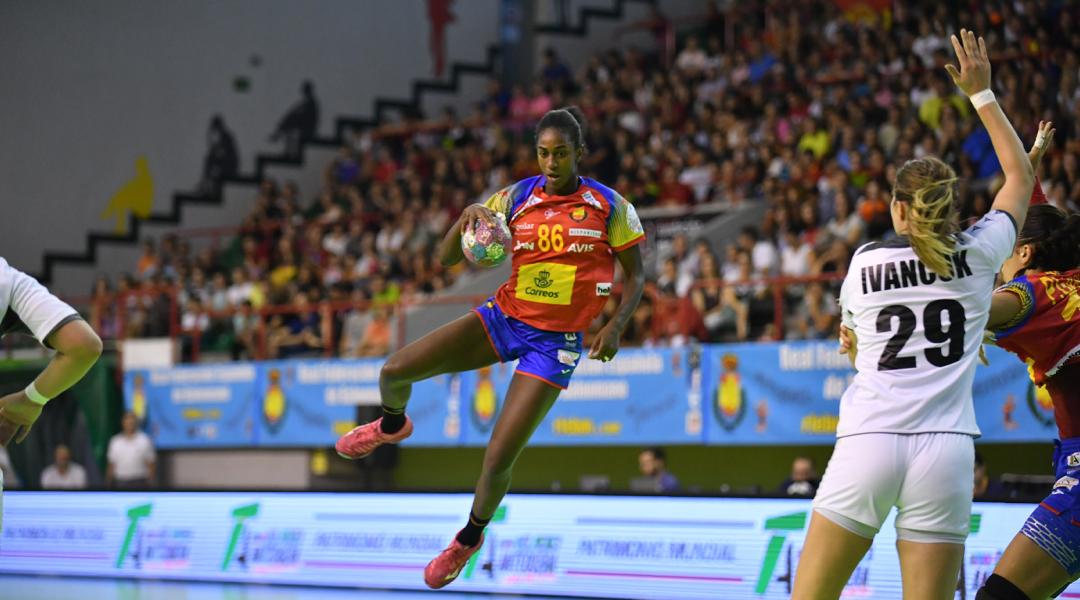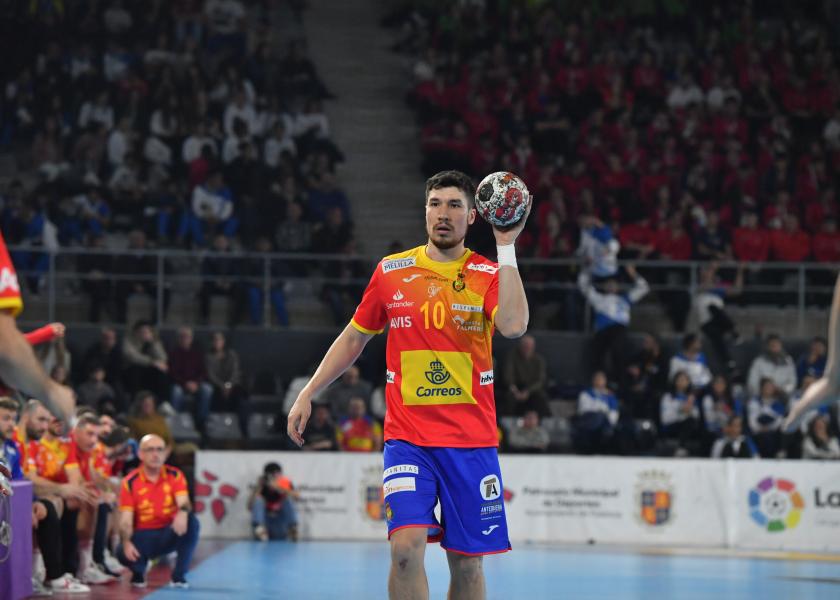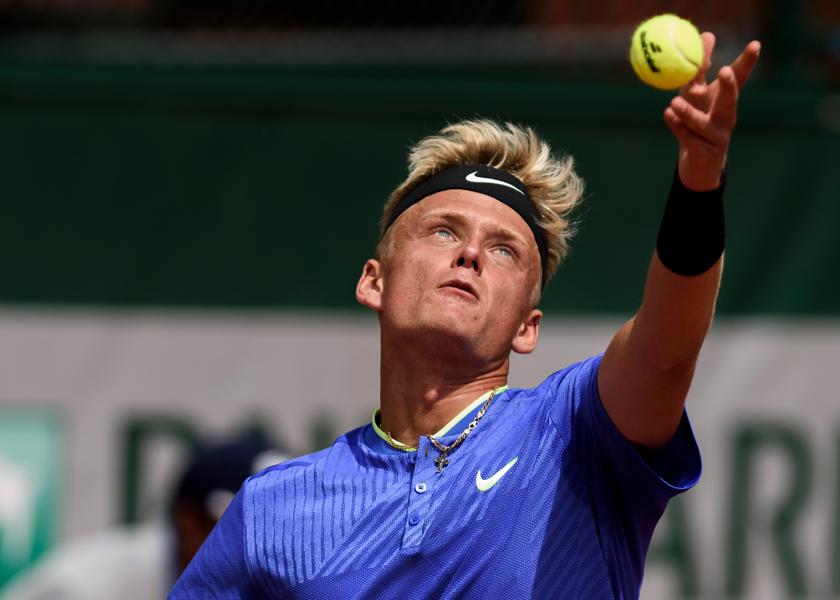Alexandrina “Shandy” Barbosa
Return of the Goal Getter

Currently immersed in the World Cup, the Spain national handball team, fondly nicknamed 'Las Guerreras' (Warriors), want to continue making history after a few years in which they have established themselves among the most powerful teams in handball. To obtain their Tokyo Olympics ticket, they’re counting on Alexandrina "Shandy" Barbosa, who is back on the court after becoming a mother.
She was born in Portugal and picked up handball there, but it was Spain where she became one of the best handballers in the world, and whose colours she decided to defend. Alexandrina Cabral Barbosa (Lisbon, 1986), also known as Shandy, is back to put her powerful overarm shot and her ability to steal balls and set up counterattacks at the Guerreras’ service for the Women's Handball World Cup. And she does so after having been out of the game for a few months to give birth to her first child.
The player of Cape Verdean origin admits that her choice, in 2012, for the Spanish national team over Portugal had a lot to do with the difference in ranking between the two nations. Still, her eyes light up when she talks about Valencia and, above all, about Spain: the country she wants to go to the Tokyo Olympics with.
Of all the names you’ve worn on your shirt (Shandy, Alexandrina, Cabral, Barbosa), what do you prefer to be called?
People already know me by Shandy, so you can call me Shandy.
What is the selection’s main goal for this World Cup?
The main objective is to qualify for the Olympics. Of course, all major championship tournaments are complicated, but we know that this one is something else, because there’s a lot at stake.
You’re in a tough group, with Romania and Hungary, two of the strongest teams. Which other teams do you see as favourites?
Russia, France, and the Netherlands are in great shape as well, and Norway, who are always up there, although they’re missing a lot of players this time.
When you’re in training, how do you disconnect during the few free hours you have?
We try to talk about other things, watch films, go out, go for a walk… Most of all, we avoid talking about handball because with all the videos, technical talks, and training sessions, that subject is more than covered. So, when we have time off, we try to disconnect. Mind you, on days like these, with the matches, we do talk about rival teams.
You became a mother for the first time last April, and now you’re back playing a big tournament with the Guerreras. How do Shandy the mother and Shandy the top athlete coexist?
It’s hard to stay focused for almost a month after having a kid. I’ve left the baby with his father, and he takes good care of him, but it’s hard for me because I’m so far away. However, both my partner and I have decided that I should be able to make the most of this World Cup and qualify for the Games.
Did you have a hard time getting back in shape after giving birth? Have you had to change your training routine?
I thought it would be harder, to be honest. I was up and running with no complications about a month and a half after giving birth, and in July, two months on, I was already training with the team without any limitations whatsoever. I’m quite happy because it didn’t take me long to get back in shape, though I’m still not where I was before I got pregnant. But I’m getting there, little by little.
“There are clubs that say that there’s no problem with players getting pregnant, but that’s not always true”
After your experience, do you think that female top athletes are getting the support needed to combine top sport with motherhood?
I think that clubs don’t make it easy. It’s true that in France, where I was playing when I got pregnant, you’re allowed by law to get pregnant while competing. In my case, my club gave me problems when I told them I was pregnant, which was one of the reasons I wanted to leave. There are clubs that say there’s no problem, but that’s not always true. It’s a constant struggle. I hope that one day we’ll be totally equal.
You stand out, among other things, for your scoring ability, which is helped by your powerful jump and your excellent overarm shot. Is this your best asset for this championship?
I think so, and stealing the ball. After all these months I am getting the feeling back and I’m returning to form when it comes to stealing ball and scoring goals, which my teammates could have used during the previous championship.
You’re the sixth top scorer in the national team, as well as having the second-best scoring coefficient in the history of the Guerreras. Do you see yourself entering the top 5?
I honestly didn’t know I’m the sixth top scorer. Goals aren’t important to me if they don’t help the team. If we win a match because of my goals, that’s great, but I’m not bothered about out-scoring other players.
You became a Spanish national in 2012, the year you decided to defend the colours of Spain. What led you to this decision?
It was mainly for sporting reasons. I never had the opportunity to play any big championship with the Portuguese team. I came to Spain in 2007. Valencia is my home and my husband is Valencian. I’ve played in France, Germany, Romania and now Russia, but there’s no comparison! (laughs). Spain is the best place to be, without a doubt.
Am I right in thinking your intention is to end your career playing here?
Yes, you are. I’m really looking forward to coming back, both to play and to live here. I’d love to go back to Valencia because that's where I started playing handball on a high level.
Any post-career plans?
I’m not sure yet. I’ve always wanted to be a police officer, but lately I’ve found that I love teaching handball to others. So maybe doing that as part of a club’s coaching staff could be an option.




